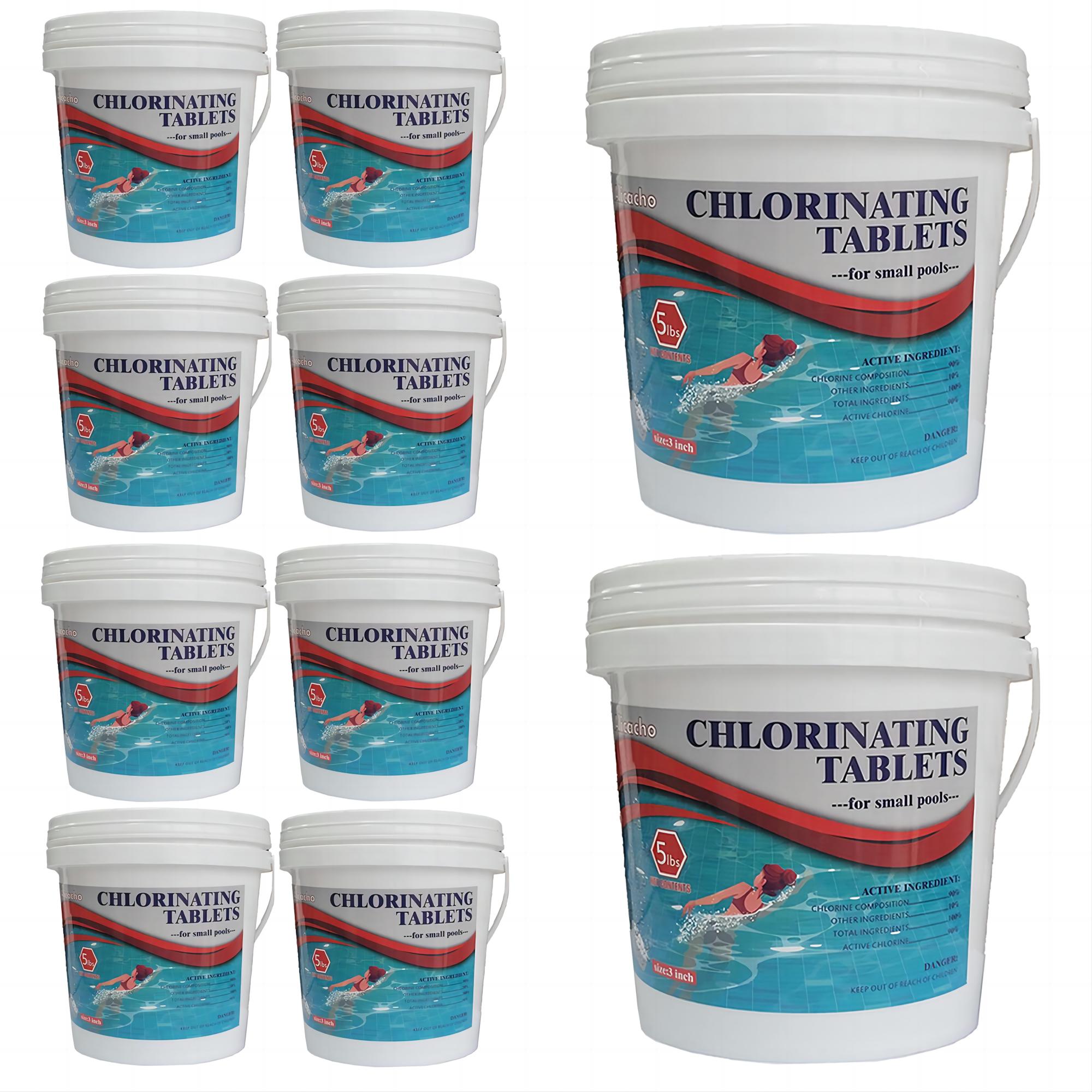One of the basic things to know as a pool owner is the procedures about how to shock a pool before or after rain. Rain is one of the many things that can have a huge impact on your pool, especially on the chemicals that are in it. The very important thing to figure out when it comes to this is the necessity of the process of shock pool before and after rain.
To make sure that your pool water is clean and safe to swim in, it is recommended that you execute pool shock weekly, or as often as it is needed. There are specific times when pool shocking must be executed or when an extra dose of chlorine is needed, and one of which is after a heavy rainfall.
In this article, we are going to talk about the process of how to shock pool before or after rain, and we are also about to know the essentials to the process of shock that will help all the pool owners especially those that are still new to owning a pool.

Part 1. What Are The Effects Of Rain On Your Pool?
Before we get to the discussion of the process of how to shock pool before or after rain, let us first figure out the effects that rain can bring to your pool. Here’s what you have to know.
1. Rain can affect the chemical balance of your pool.
Once the rain is diluted in your pool water, it can affect its water chemistry quickly, Also, when it happens, chlorine will be no longer effective in killing contaminants that are present in your pool water. It is also possible that the rain will collect dust, dirt, and pollutants that will largely contribute to alterations in the chemical balance of your pool.
2. It will affect the level of TA or the total alkalinity of your pool water.
If it rains, and it falls into your pool water, the level of the total alkalinity will drop. As a result, your pool water may turn green, and there could be erosion in the surfaces of your pool, it can also cause corrosion in your pool equipment, and even a lot more. To make sure your pool’s pH is stable, you need to have a balanced TA level.
3. The level of pH of your pool can be highly disturbed
It is known to pool owners that the ideal range of pH is between 7.2 and 7.6, and since rainwater is acidic, it can cause the pH level to drop. Once pH is not balanced, it could result to having murky water and can also cause stains on the sides of your pool. You can also experience irritation in the eyes and the skin due to low pH.

4. Calcium hardness level will increase.
Another effect of rainwater on your pool is the increase in the level of calcium hardness. Although the way it can be increased is not direct, once it rains, there is a higher possibility of minerals and dirt being washed away to the pool deck going into your pool water which can be the cause of the increase in the level of calcium hardness in your pool.
5. It can Cause Pool Pollution.
Once it rains, the possibility of grass, dirt, and plants being washed off or run off to your pool is high. These grasses and plants are full of fertilizers that have phosphates and nitrates in them. When these are mixed into your pool water, there is a higher chance of having algae infestation.
These are only some of the known effects of rainwater on your pool. And these points are enough for you to acknowledge the effects of learning how to shock pool before or after rain.
Part 2. What Do You Need To Do Before A Storm To Protect Your Pool?
It is important that when you own a pool, you know how to take things into precautions. There are several practices that you have to execute before a heavy rain. This is a part of the essential things to know about how to shock pool before or after rain.
One of the best practices that you can do before a heavy storm or rainfall is to shock your pool. Since you already have an idea of what is coming, it would be best to expect the worst. These are the things that you have to do.
- Check the area of your pool for the possibility of having loose items around it. This is to avoid worst-case scenarios like blowing your pool.
- Take away potted plants as well as yard decorations around the area of the pool. Once it rains hard, there is a possibility of having it run off to your pool.
- Turn off your pool pumps, and get it a cover so that it will have added protection during the storm or heavy rain.
- Get your pool a heater cover.
- You can also invest in a good pool cover if you have an outdoor pool.
- Shock your pool a few days before the forecasted typhoon. This will serve as a pre-treatment of your pool in case there could be a really heavy rain.
It is best to always check weather reports especially if your pool is uncovered and is located in areas with lots of trees and possible organic contaminants.
Part 3. Things To Know After A Rainfall
Now that the rain has stopped, you have to clean the mess it left. Aside from cleaning, brushing, vacuuming, and balancing the chemicals in your pool water, you have to shock your pool.
After heavy rain, it is a given that the level of chlorine in your pool is low compared to the required amount or level, not having enough to fight and kill all the contaminants. This is why it is important to know that you have to shock pool before or after rain, this process replenishes the chlorine content which is lost because of rain. This will also help you balance the chemicals in the pool as required or needed, so start shocking your pool and make sure that your pool pump is on and running.
Part 4. FAQs
1. Is Rainwater Connected to Chlorine Levels in Pools?
Rainwater can cause the level of pH in your pool water to increase. On the other hand, it reduces the level of Total Alkalinity or TA through the process of dilution. If the pH in your pool water is high, it can make the chlorine contents of your pool inactive which will reduce its effectiveness.
2. Is it Safe to Shock the Pool While Raining?
It is safe to shock your pool even when it is raining, moreover, it will be safe to assume that as it rains, the contaminants in your pool water may be doubled, so to avoid it and make the cleaning effective, it is safer to wait for the rain to stop.
3. Will I Have a Clear Pool after Shock?
It is advisable to execute pool shocking to obtain a clear and clean pool. As you routinely shock your pool water, bacteria, germs, and other contaminants will be removed or eliminated resulting in obtaining a really clear and clean pool.
4. Why did My Pool Turn Green after the Rain?
If you are a new pool owner, you might be confused as to why your pool turned green. Well, it is a common scenario after a heavy rain or a rainstorm. However, the reason for this is rainwater is naturally acidic, and once it falls into the pool, the level of pH may go down, as well as the phosphates level present in the pool water. And it is possible that the pool will still appear green after the shock.
5. If I Add Vinegar to the Pool, will it be Useful?
Well, if you add vinegar to a green pool, it can lower the level of the pH since it is acidic. Also, vinegar can help control algae growth if your pool is chlorinated. As we all know, algae are organisms that can thrive in environments that have high pH, so if you make efforts to lower the pH, it will be a difficult environment for algae to grow.




